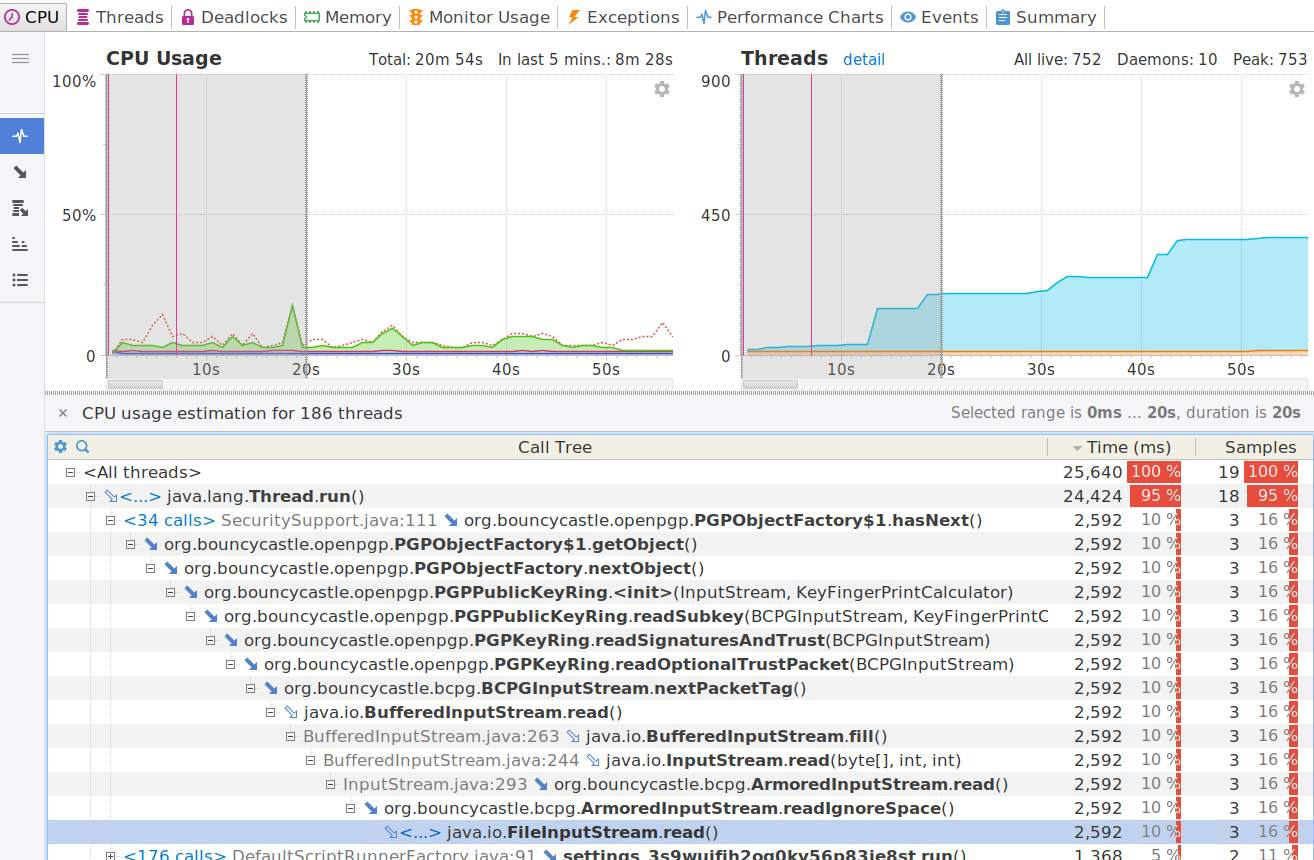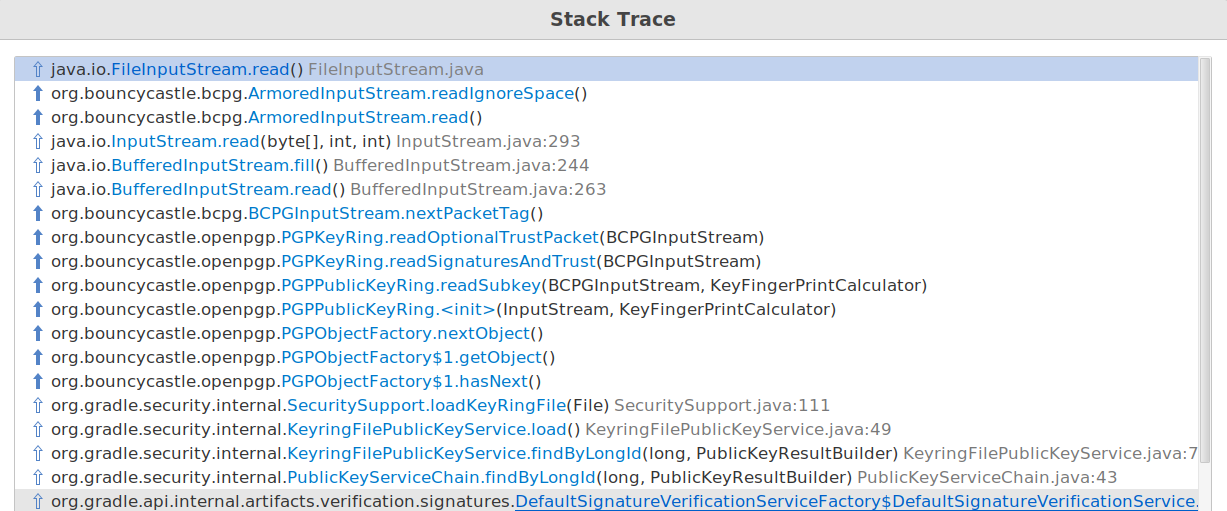In Profiling - The Good Kind and Gradle Configuration - Death by a Thousand Cuts I talked about importance of every ms in Gradle configuration phase. Reducing your I/O in this phase is another important aspect. In this post I share how I stumbled into and fixed unnecessary I/O reads in AndroidX Gradle configuration phase.
As I looked into a trace of ./gradlew build --dry-run in a clean build cold
daemon case I found that in the first 20 seconds there is a surprisingly long
2.6 seconds spent in PGPPublicKeyRing.

AndroidX runs with Gradle signature verification enabled and so it wasn’t surprising that it was reading the file, but it was surprising that it was taking this much time for a 760kb file from an SSD. Seeing that this was a file read event, I jumped to the events tab to see what was happening.

Here I found tens of thousands of reads of verification-keyrings.keys, each
one of them a 1 byte read. Then I clicked on one of the entries to see a
stacktrace.

Looking at this, it was either a bug in BouncyCastle PGP library or Gradle.
In SecuritySupport.java:111
we can see that createInputStreamFor(keyringFile) is used to create this
input stream sent to BouncyCastle library.
private static InputStream createInputStreamFor(
File keyringFile) throws IOException {
InputStream stream = new FileInputStream(keyringFile);
if (keyringFile.getName().endsWith(KEYS_FILE_EXT)) {
return new ArmoredInputStream(stream);
}
return stream;
}
Using FileInputStream without wrapping it BufferedInputStream results into
an I/O call for every InputStream#read() call. That was exactly the fix
for Gradle! We’ll have a
fix for this in Gradle 8.1.
Using the same process, I was also able to find that AndroidX buildSrc code was doing I/O during configuration phase to check if a given project has any test code and got to remove it saving us hundreds of I/O calls in this phase.